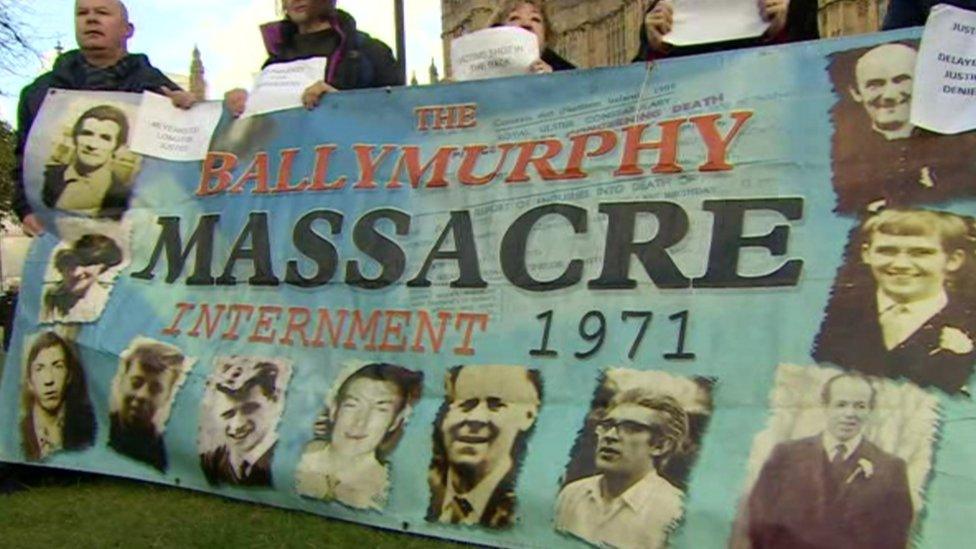Ballymurphy inquest: Families describe lost loved ones
- Published
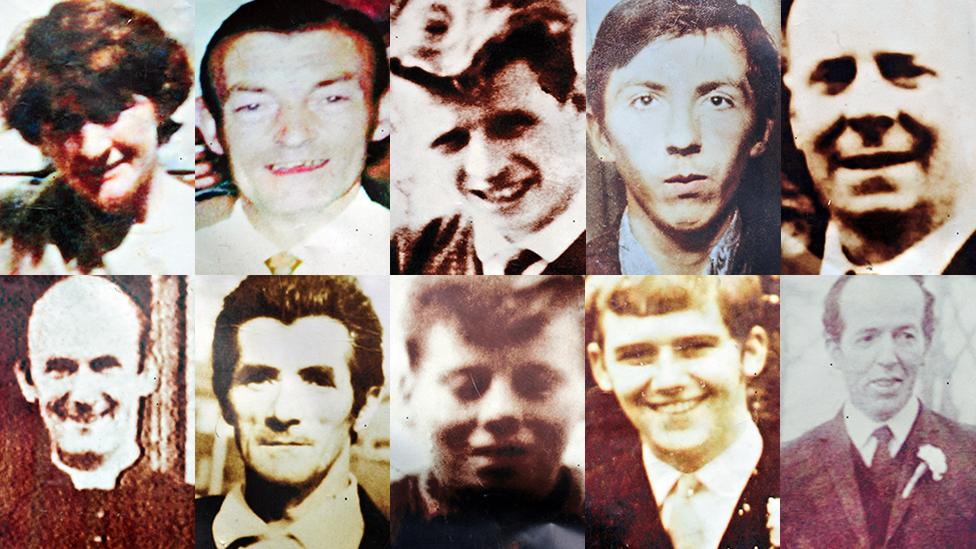
Nine men and a woman were killed in Ballymurphy in August 1971
Three more families have been giving moving accounts of relatives who were killed in Ballymurphy in 1971.
Their statements came on the third day of the inquest into the killings of 10 civilians 47 years ago.
The killings happened during an Army operation in which paramilitary suspects were detained without trial.
At the time, the Army said the victims were either IRA gunmen, or were caught in the crossfire.
The families of those who died say they believe the evidence which is heard during the inquest will show their relatives were innocent, and were targeted deliberately.
Throughout all three statements given on Wednesday, family members and friends were weeping quietly in the public gallery.
Briege Voyle spoke at length about her mother, 44-year-old Joan Connolly, a mother of eight, and the only woman shot in the killings.
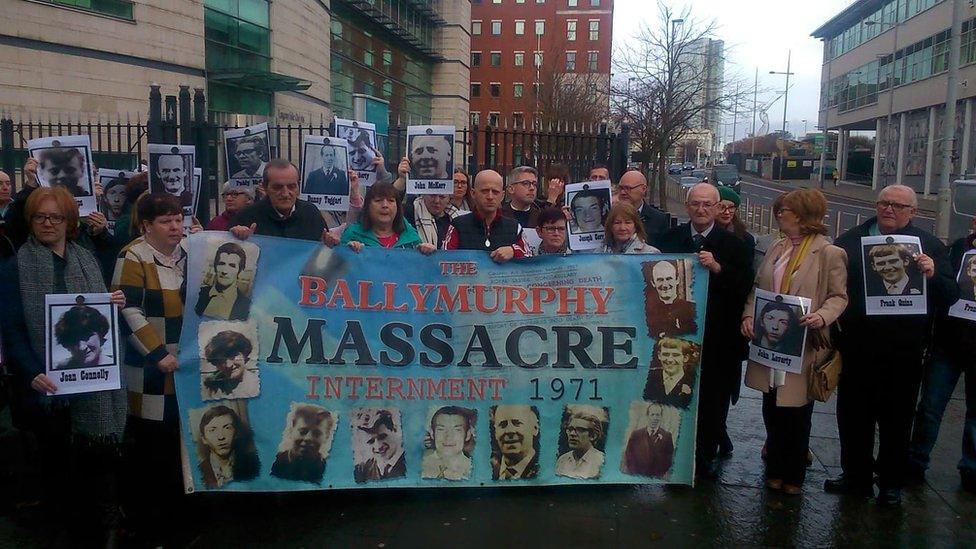
Relatives and supporters gathered outside Laganside Courts on Monday before proceedings got under way
The Army said soldiers had shot an IRA gunwoman, something her family has always denied.
Breaking down several times during her statement, Mrs Voyle added: "To the media she was a gunwoman, to the world another casualty. But she was just our wee mummy, our world, our hero."
Later Janet Donnelly spoke about her father, Joseph Murphy, shot on the same day and at the same place as Joan Connolly.
Mrs Donnelly told the court that after her father died in hospital, an Army patrol jeered at her family and sang "Where's your Papa gone?" to the tune of a chart hit of the time.
Her mother later lost a nephew and a brother to shootings during the Troubles.
'Big, black, heavy curtain'
The third family member to provide a so-called pen portrait was Kevin Philips, a brother of Noel Phillips.
Mr Philips, a 19-year-old window cleaner, was also shot at the same time as Joan Connolly and Joseph Murphy.
Kevin Phillips said the death "was like a big black, heavy curtain just came down on top of everyone."
Mr Phillips said he often wondered what the soldiers involved in the shootings told their families afterwards.
"Did they portray themselves as heroes to their children after they came over here and killed our loved ones?," he asked.

Joan Connolly
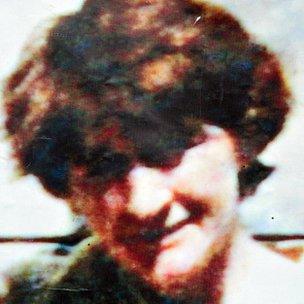
Joan Connolly, a 44-year-old mother of eight, was the only woman shot in the Ballymurphy killings.
Mrs Connolly and her family moved from a two-bedroom bungalow on north Belfast's Shore Road to a four-bedroom house in Ballymurphy in 1966.
Her daughter, Briege Voyle, said her mother was shocked by the start of the Troubles, saying that she "just couldn't get her head around" what was happening.
Her eldest daughter married a British soldier and they had a baby son, Joan's first grandson. Previously Joan had made tea and sandwiches for British soldiers at her house.
Briege was moved to a refugee camp in Waterford during the violence in Ballymurphy and only found out her mother was dead when she saw it on a TV news report.
She went out to look for her daughters on the night of 9 August 1971, when she was shot dead.
"My mother was very dearly loved and has been very dearly missed. Losing her destroyed our family.
"Whilst coping without her has been hard for all of us, what has made things worse were the media reports that she was a gunwoman and the rumours that followed us that we were the children of the gunwoman that was shot. I believe this to be untrue."

Joseph Murphy
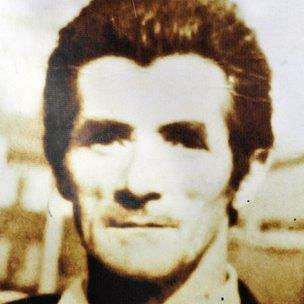
Joseph Murphy, 42, from west Belfast, worked as a rag and bone man.
He was a father of 12, whose own father served in the Army.
His daughter, Janet Donnelly, said he would often bring stray animals home with him, which was how she got her first pet - a kitten.
She told the inquest she remembered waiting for her dad to come home from work on Friday nights and asking her who she loved most as she sat on his knee.
"I remember my daddy going out on the day he was shot. We were all upstairs and I can remember running to the landing and shouting 'Daddy where are you going?' and him saying 'a wee message'.
"I asked him to give me a kiss and stuck my head through the banister of our stairs and he kissed me."
He was shot in the leg on 9 August 1971 and taken to hospital where he died 13 days later, on his twin sons' 16th birthday.
"I was only eight when my daddy died but I remember that Sunday as if it was yesterday," Mrs Donnelly said.
"This was the first time I ever saw my brothers cry. They never celebrated another birthday since that day."

Noel Phillips
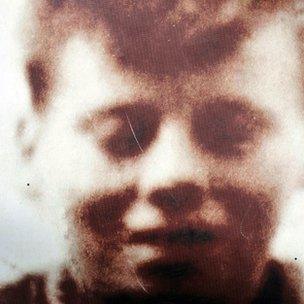
Noel Phillips was a 19-year-old window cleaner, who according to his brother Kevin "loved his style" and was so quiet, sedate and easy going that no-one could say a bad word about him.
Kevin Phillips said that when trouble broke out on 9 August 1971, his brother was "doing what kids do, you would go for a nosey that's all he was doing".
He said his brother Robert and a brother-in-law went to the morgue to identify Noel's body after he was shot.
"They came back in a terrible state, nothing was ever the same from that point," Mr Phillips said.
"Nobody came to tell us Noel was dead. We just had to find out for ourselves."
He said his mother, once a happy-go-lucky woman, "went to pieces" and was never the same after losing her son.
"After his death, everything just went black, everything changed for us. There was no laughing or messing about, the normal things six brothers would get up to, that all changed," he said.
"We never spoke about our Noel's death and we never asked our older brother Robert about identifying his body. He never spoke about it right up until the day he died."

Three more families will present portraits of their loved ones on Thursday.
- Published12 November 2018
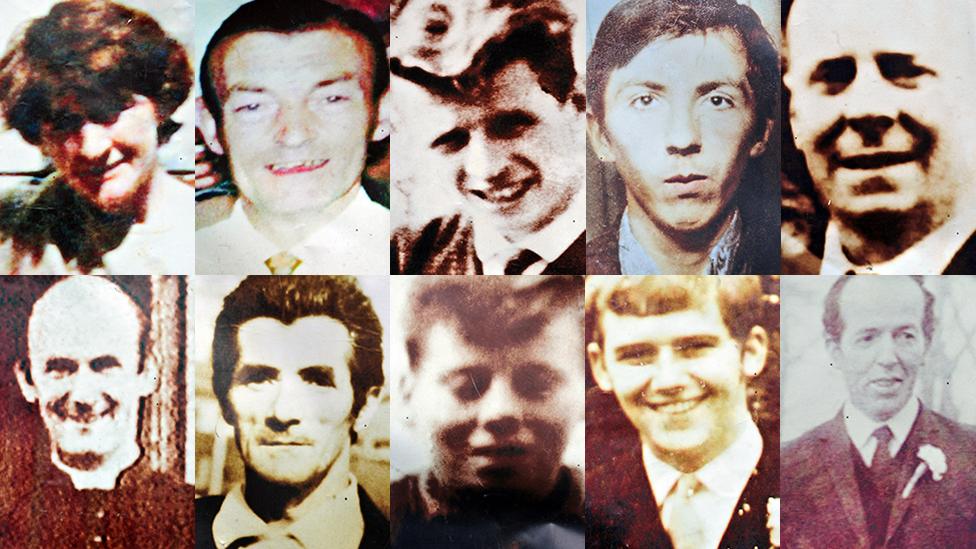
- Published2 May 2018
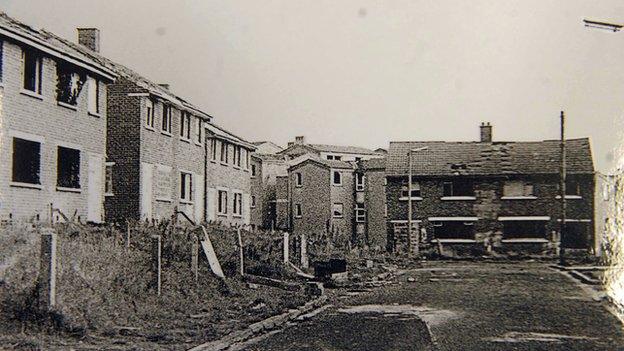
- Published6 September 2018
